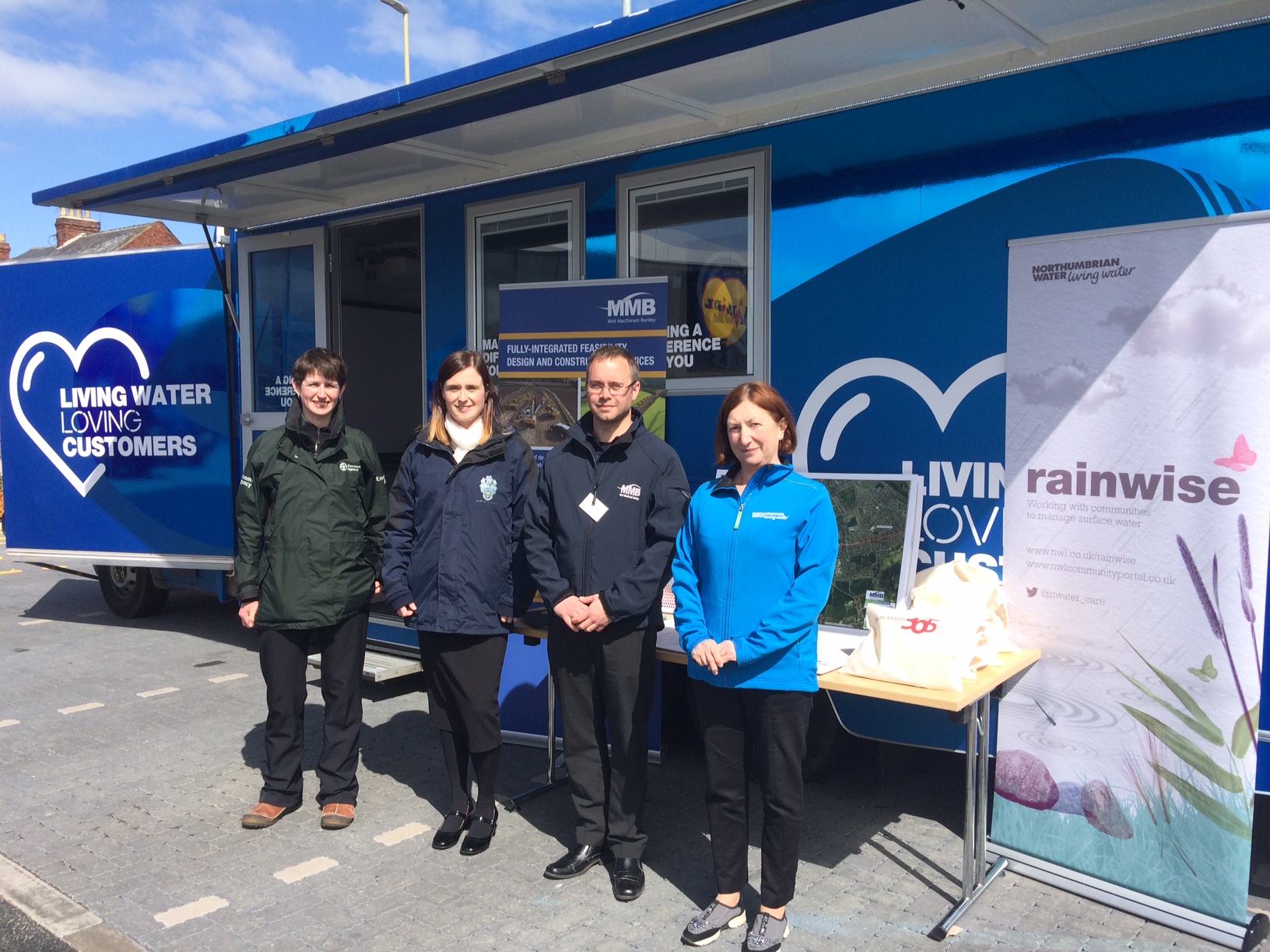Rainwise – Changing Landscapes and Changing Behaviours
Rainwise is Northumbrian Water’s surface water management programme, established to address our goal of reducing the risk of future flooding to 7,200 properties across the North East of England by the end of 2020. It is our proactive approach to flooding by working in collaboration with our partners and our local communities.
Our sewer network is experiencing the same pressures as the rest of the country, such as urban creep, population growth and climate change. These pressures were brought to light with Thunder Thursday, a tremendous flooding event in June 2012, when Tyneside received over 3-inches of rain in just over an hour. The images of the flood-swept streets of Newcastle that day will quickly make you realize that flooding isn’t merely an issue of inconvenience or property damage, but can be a direct threat to human life.
By this time, we had already come to the realisation that we needed to think differently about how we managed surface water. Our pilot Tyneside Sustainable Sewerage Study was a national first where we joined forces with other risk management authorities to share information, find benefits and identify projects to construct together to deal with catchment wide flooding mechanisms. Several projects from this study later became our first Rainwise projects.
These principles of partnership working were expanded across the North East to create the Northumbria Integrated Drainage Partnership (NIDP), the first in the country. The NIDP provides a framework for multiple agencies to look for the best and most sustainable solutions to flooding and a robust scoring system so that costs & benefits are better understood and prioritized on a like-for-like basis.
The partnership projects we have constructed as part of Rainwise share common characteristics and themes. They have all addressed catchment wide flooding and flow management, valuing SuDS and natural systems. All projects had scenarios which no single agency could have addressed on their own, or not without causing detriment to others. They have all been delivered with capital efficiency to the parties, primarily through jointly sourcing engineering consultants and contractors.
Click here to view example Rainwise project case studies.
However, Rainwise is not just about changing the landscape by building things, but we also needed to change behaviours through awareness raising and education. We reach out to local communities early on and involve them in our planning stages so that we can get better information and better solutions, providing context sensitive designs which are right for the business and the community too.
We do this using our community engagement vehicle Flo – a big blue van – and attending community meetings and events. In the last year, we’ve actively engaged with nearly 400 customers over 17 communities and reaching thousands of people with our messages.

We have also run campaigns, including on air messaging, advertising on bus shelters, social media activity, leaflet drops, events and school workshops. A key message of Rainwise is to raise awareness of SuDS and encourage people to make changes around their home that reduce the amount of water entering the sewer. And by taking this action, they and their neighbours collectively can affect their own resilience to future flooding themselves.
NW_rainwise_leaflet – Every customer in a Rainwise project area receives this flyer. This is intended to support our communications goal of having our customers recall three key facts about sustainability.
We want our employees’ behaviour to change too, and have began installation of rain gardens and water harvesting systems at our own operational sites. Harvested rainwater is being used daily in our jetting trucks to cleanse the sewer network in the North East.
I am happy to write that Rainwise is a success and by being innovative in how we think and what we build, we are forecasting to exceed 7,200 flood risk reduction interventions by the end of the AMP. As you can see, none of this could have been achieved in isolation, but required strategic partnerships and community buy-in. The Rainwise principles are a fundamental building block of our PR19 submission as we aspire to create a pipeline of partnership projects of all scales which we can construct as well as improving our customers’ participation in engaging sustainability themselves.
Loren Jennings, P.E., is Lead Project Manager for Rainwise, Drainage Area Studies and Hydraulic Modelling for Northumbrian Water.